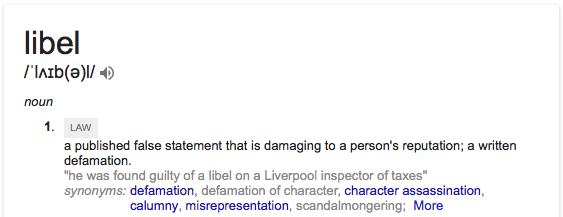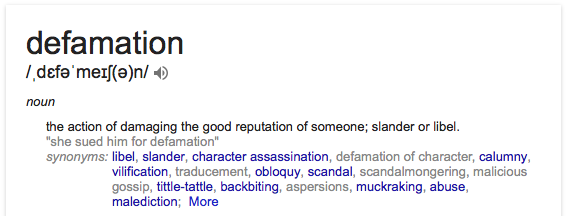Social media web sites like Facebook and Twitter and other web pages on the Internet have opened a whole new area of communication in recent years, which journalists and publishers can source and find stories and information. As a majority of people with Internet access have a social media account, published copy is now available to a much wider audience.
Because of the rise of social media users, our everyday lives can be exposed to a world-wide audience. I can post what I had for breakfast and if enough people are linked to me or my post is shared, millions of people world wide will read my post and know what I had for breakfast. Obviously what I had for breakfast isn’t exactly news and isn’t very entertaining, but professionals (journalists and publishers) and even people like you and I have to be careful with what we are posting as there are some legal pitfalls if what you are posting is not considered ‘right’.
If you publish false news that defames an individual, corporation or group of people you may be subject to legal proceeding such as a fine or a court hearing. There are a few terms that as a journalist or somebody who posts content regularly online should know.
For this task I was to research the legal terms ‘Libel’, ‘Defamation’ and “Copyright’ and explain how each of these could affect online writers.
As a journalist written content should always be truthful and honest. Often stories may not have all of the facts and may speculate what is happening/has happened but to fabricate news, to make up stories and publish false statements that can potentially harm an individuals, groups or companies reputation is libel. If you post this written defamation you can be called to court or face a fine if your statement has potentially caused financial and/or personal distress.
Slander is a verbal defamation and libel is a written defamation. As a journalist if you publish copy or verbally spread news for example, about a teacher of 20 years who has achieved plenty in their lifetime and say that he has been sexually involved with several students over the years. This news true or untrue has severe repercussions. If found guilty the teacher, rightly so will be dealt with to the full extent of the law. However if the news is fabricated or not backed up with any evidence the teacher has perfect grounds to sue for slander or libel depending on how you spread the false news. A court could then find that the quality of the teachers life has been terrible since the false news soiled his good reputation and he lost his job and plenty of money because of it.
Copyright

Publishing content that is copyrighted can lead to legal proceedings. As a publisher you can get a copyright for your own work and if someone else steals your work, you are within your right to sue them for breaching your copyright. Examples of this can be novels, films, music, pictures. As a journalist if you wish to use content that isn’t freely available to anyone, you must ask permission.


